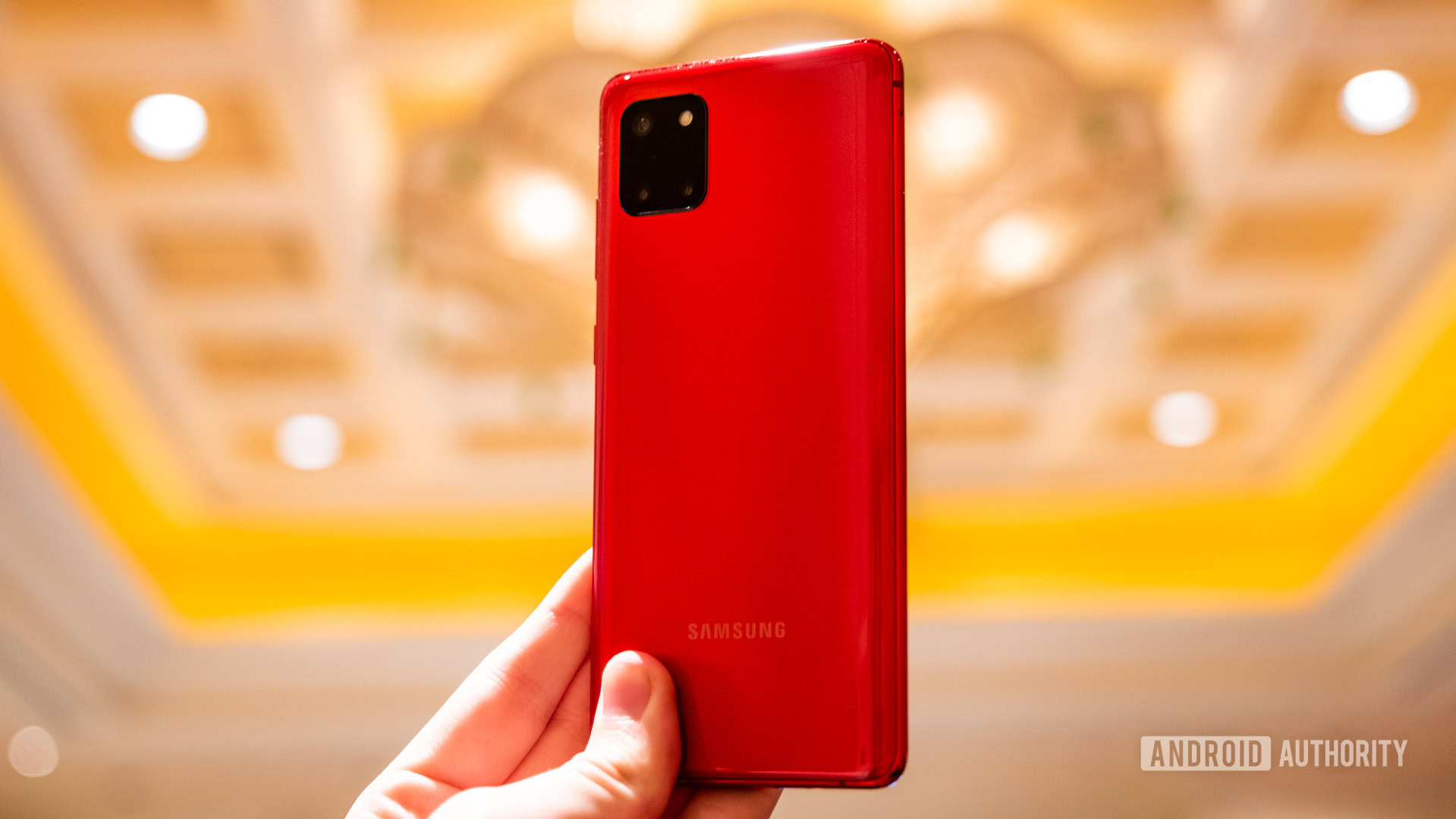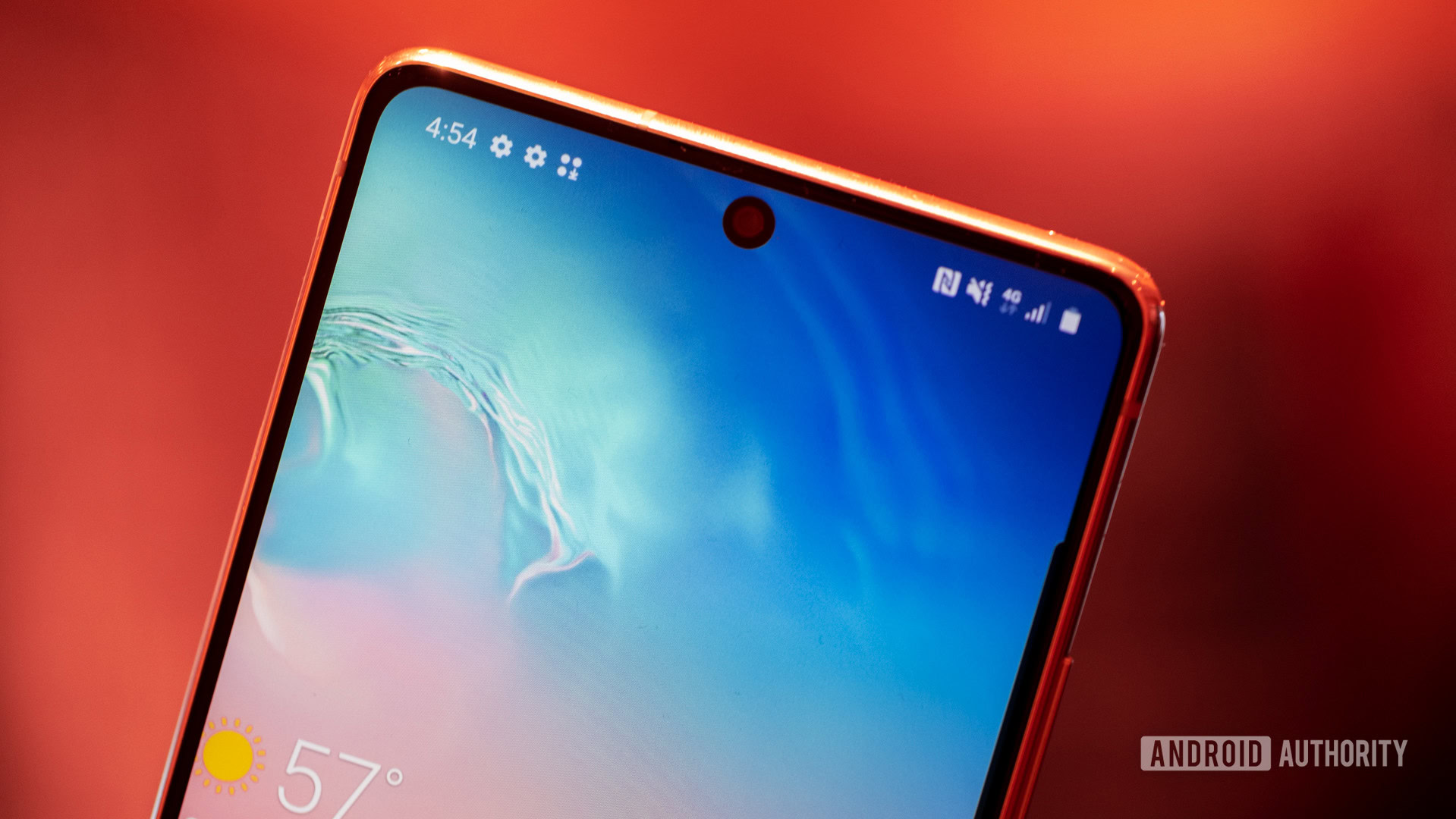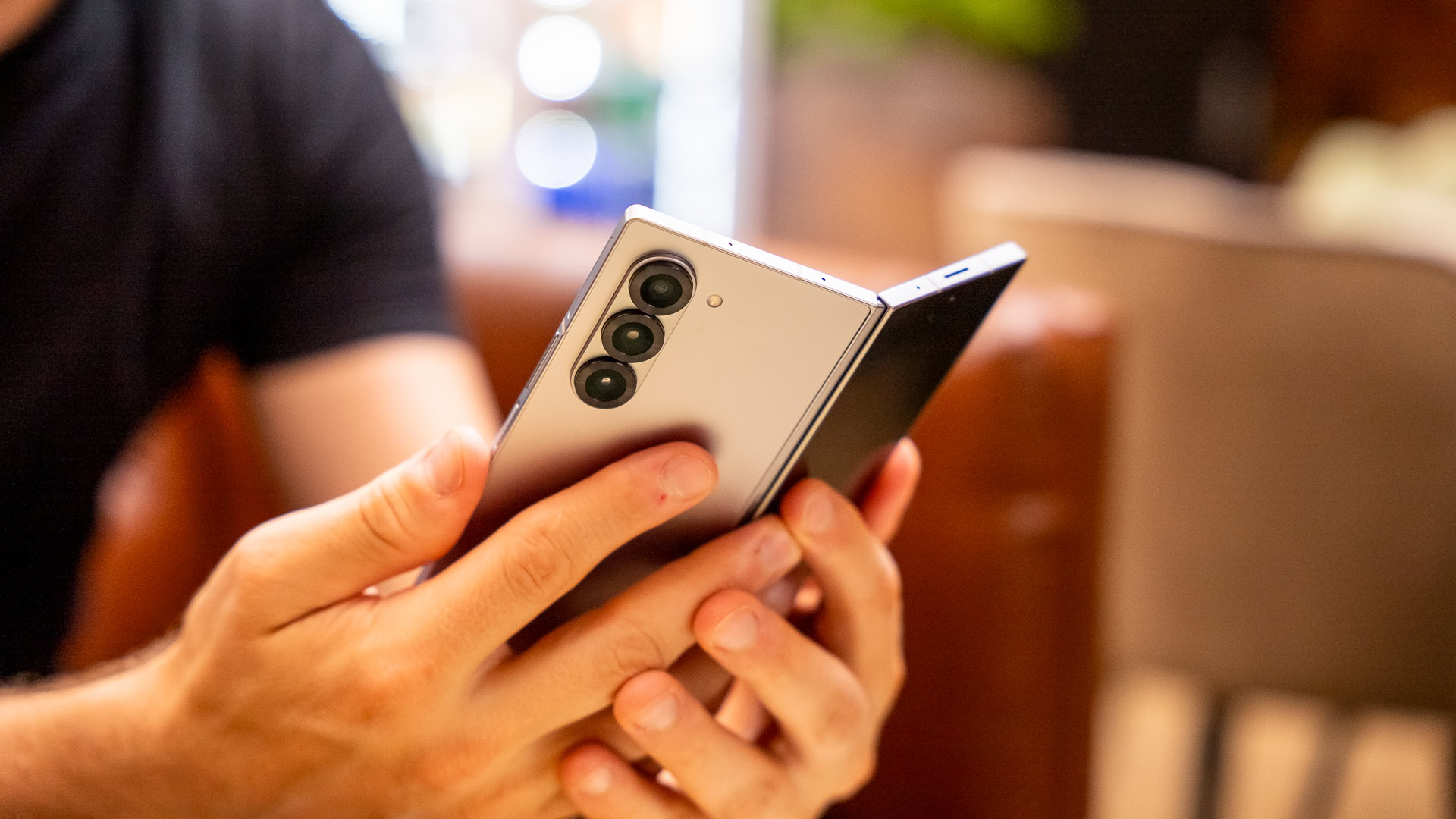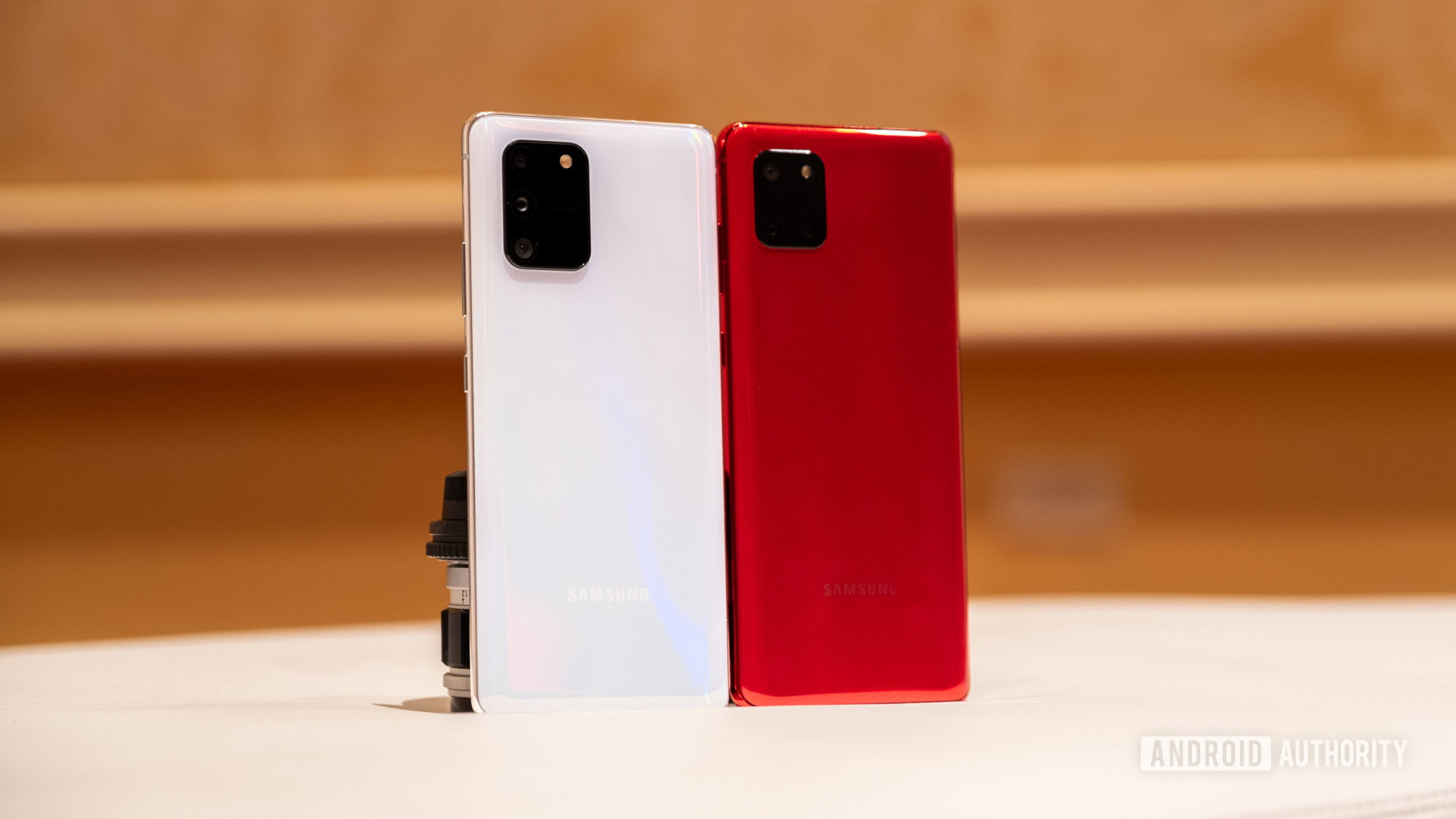Affiliate links on Android Authority may earn us a commission. Learn more.
Samsung S10 Lite and Note 10 Lite: Who are they actually for?

Samsung snuck out the Galaxy S10 Lite and Galaxy Note 10 Lite ahead of CES 2020, but there are still plenty of unanswered questions surrounding the pair.
So far, we know that the two phones are heading to parts of Europe, at the very least, and both are shaping up as intriguing propositions. Samsung isn’t paring back its latest Lite models to anything like the extent we’ve seen from other manufacturers over the years. Yet although the phones look great on paper, it’s a little hard to know exactly who they are for.
Typically, Lite smartphone variants compromise on things like processor capabilities, storage capacity, or camera specifications. Not the Galaxy S10 Lite and Note 10 Lite. Although perhaps you could count the Note 10 Lite’s 2018-era Exynos 9810 SoC as a minor cost-cutting measure. But with high-performance chips, triple camera setups, and even an S Pen with the Note 10 Lite, these phones don’t feel too far off being full flagships.
So who are these handsets for and what’s the point of them?
Saving costs on design
Where Samsung has paired back these Lite models is in the design department. Despite aesthetics that align closely with the rumored Galaxy S11/S20, Samsung has opted for plastic over glass. That undoubtedly saves quite a bit on costs but the handsets feel cheaper in the hand as a result.
Samsung has also downgraded the displays in the S10 Lite and Note 10 Lite. Not in terms of raw specifications, you’re still getting Super AMOLED panels with FHD+ resolutions. However, the curved Infinity Display design gives way to a more basic flat screen. Curved displays are some of the most expensive items on Samsung’s bill of materials. The trade-off is a more generic-looking phone from the front. Although flat screens seem to have their fans too.
Dislike Samsung's edge display? The Galaxy S10 Lite is made for you.
The design similarities with the Galaxy S11, or S20 as it may be called, certainly suggests that the Galaxy S10 Lite and Note 10 Lite are envisioned as affordable alternatives to Samsung’s next-gen flagship, with the added bonus of an up to date look. Furthermore, if the S10 Lite is the affordable entry point, the upcoming Galaxy S11e becomes the small flagship model, rather than just the cheap option.
There are definitely customers happy to buy into Samsung’s ecosystem but who don’t need all the unnecessary bells and whistles associated with Samsung’s very-top-tier products. While not Lite in the traditional sense, these two handsets are a more affordable entry point for Samsung fans.

An affordable 4G alternative to the Galaxy S20
There are two important things to consider about 2020 flagships that help to explain the existence of Samsung’s Lite models.
The first is 5G. With Qualcomm pushing 5G in its premium tier chips, this year’s flagship smartphones might be 5G-only. Including, potentially, the Galaxy S20 series. Despite the industry’s (over-)eagerness, most global customers won’t get to experience 5G in 2020. There’s still demand for 4G flagships in global and even Western markets. Samsung’s Galaxy S10 Lite and Note 10 Lite fill that potential 4G void quite nicely.
Lite models cater to 4G customers while flagships embrace 5G.
5G flagships are very expensive, often pushing prices above the dreaded $1,000 mark. Rumored specifications for the Galaxy S20 point to a number of other expensive features too. Including a 120Hz curved display, penta-camera arrangement with 108MP and 48MP sensors, and an in-display fingerprint scanner. All that tech is not going to come cheap.
While flagship prices continue on their upward trajectory, there’s still a huge market for “old” flagship prices. Particularly phones that fall in the $600 to $800 bracket. Just look at the appeal of super mid-tier brands, including OnePlus and realme. These and other brands have eaten into Samsung’s market share in a number of regions.
While we don’t have exact regional pricing information yet, the Galaxy S10 Lite is set to cost around €649 ($720). Meanwhile, the Galaxy Note 10 Lite starts at €599 ($670). That’s cheaper than the launch prices of the S10e and Note 10, as we would expect. The Galaxy S10 Lite and Note 10 Lite slot right into the aforementioned price bracket, netting Samsung access to these key customers and markets. Meanwhile they free the Galaxy S20 series to focus on the most premium customers willing to pay more for cutting edge features and 5G. This could turn out to be a very smart strategy from Samsung.
Things we’re still baffled by
Despite some good reasoning for the Galaxy S10 Lite and Note 10 Lite, there’s still a few things I find quite baffling about these phones.
For starters, the introduction of more products in the $600 to $700 price bracket risks cannibalizing the inroads the Galaxy A series has made recently. 2019’s Galaxy A80 certainly doesn’t look like a great buy compared to the S10 Lite. Similarly, the 5G-ready Galaxy A90 offers reasonable specs for $720. But which is more futureproof, the 5G A90 or the 4G S10 Lite?

There’s also the new Galaxy A71. It has virtually identical aesthetics to the new S10 Lite but is positioned at an even cheaper price point. It’s a lot more difficult to figure out exactly where each phone sits in Samsung’s recent portfolio. There’s a real risk of confusing consumers that wander into stores looking for a new phone.
Some of the specification choices in the Galaxy S10 Lite and Note 10 Lite are also rather odd. For example, why the older Exynos 9810 and not the newer Exynos 8920 in the Note 10 Lite? The S10 Lite gets a modern Snapdragon 855, after all. Why is there a headphone jack on the Note 10 Lite but not on the original Note 10 series? Meanwhile, the Galaxy S10 Lite is much larger and has a bigger battery than the regular S10. The result is a Lite model that’s closer to the S10 Plus than the S10 or S10e.
In terms of specs, the Galaxy S10 Lite is a higher-end model compared to the Galaxy Note 10 Lite, and costs a bit more as a result. This contradicts Samsung’s usual message, where the Note improves on this year’s S series. It all feels a bit confusing.

Who wants an S10 Lite?
Few manufacturers have ever successfully pulled off an affordable spin-off line. There may be good reasons why Samsung thinks the Galaxy S10 Lite and Note 10 Lite will sell, but it’s difficult to see these handsets standing out against Samsung’s upcoming flagship launch.
Perhaps more worryingly for Samsung, the decent specs of these phones risk cannibalizing upcoming sales. There’s not too much “Lite” about these two phones. And if the price is right, some may wonder why to bother springing for the Galaxy S20 or looking at an A80. Samsung may have kept the 10 series moniker, rather than using the S11 or S20 Lite name, to help sidestep this problem. But who knows how well that will work.
At around $700, these models are more affordable entry points into the S and Note series.
I’m not convinced that Samsung’s Lite range will stick around for long. The move strikes me as a way of straddling the awkward transition from 4G to 5G across certain markets. Either way, if you’re looking to purchase a 4G smartphone with high-end specifications in 2020, the Galaxy S10 Lite and Galaxy Note 10 Lite should certainly be on your radar.